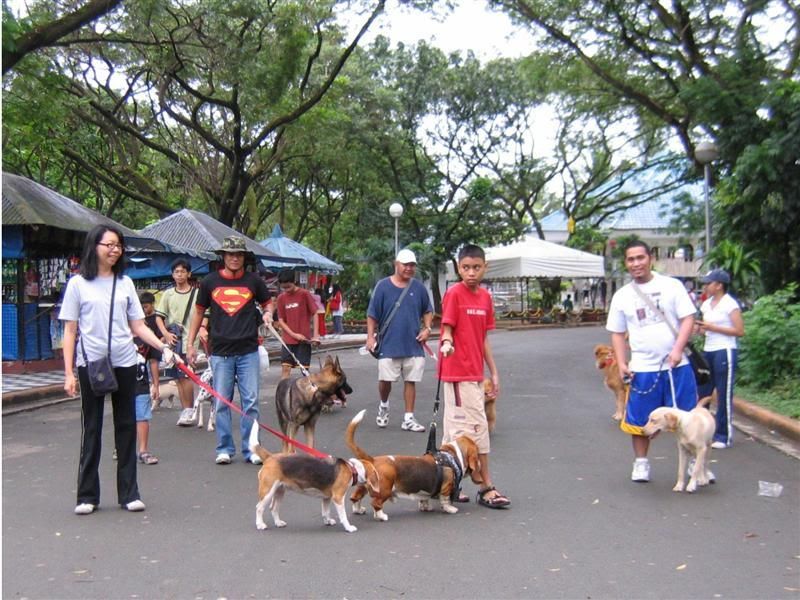- PREPARE WELL
- Know about your route and the area.
- Take adequate food.
- Bring clothing that will keep you dry and comfortable.
- Know the basics of first-aid, navigation and minimum-impact camping.
- Know what to do in case of overheating, hypothermia or danger of landslides.
2. LOCAL PRACTICES
- Know the local practices in the area.
- Respect local customs and traditioins.
- Respect other people's desire for privacy and solitude. Unnecessary disturbances (noise and horseplay) should be avoided.
3. TREKKING AND THE WILDERNESS
- Avoid widening the trail. Stay off the shoulder and walk in the middle of the trail instead.
- Suppress the desire to shortcut switchbacks. Cutting switchbacks tramples vegetation and leads to over-erosion. Use established trail when possible.
- On restbreaks, select a hardened area to absorb your impact.
- Select footwear appropriate for comfort, safety and the terrain. Heavy lug-soled boots have an adversed impact on fragile terrain. Use light footwear in camp.
4. CAMPING
- Select a level campsite with adequate water run-off, and use plastic sheet under your tent to stay dry without ditching.
- Locate your site at least 100 feet away from water sources.
- Generally, select a shelter site that has already been used to eliminate further expansion of the camp.
- Whenever possible, position your tent so it blends with the environment. Careful selection of the campsite helps preserve the atmosphere of solitude even in popular areas. Choose your site throughtfully and use it lightly, leaving it in as natural state as possible.
5. GARBAGE
- Carry out all of your non-biodegradable garbage. Bury only biodegradable trash.
- Pick up litter as you encounter it.
- Burning of non-paper trash should be minimized since complete cremation is difficult.
- Remember: Litter attracts more litter.
6. SANITATION
- Use established latrines if these are provided.
- Use a cathole if there are no established latrines. Proceed with a trowel in hand to an area at least 100 feet away from water sources, trail and camp. After carefully removing the surface duff, dig a hole several inches into the dirt. Replace the dirt and duff.
7. WASHING YOURSELF
- Even biodegradable soap is a stress on the environment, so do as much of your cleanup without soap.
- Try a soapless bath or clothes-wash, for all but the most persistent dirt.
- When using soap - even biodegradable soap - wash at least 100 feet away from water.
- Pour soapy water into highly absorbent ground.
- Brush your teeth well away from water sources.
8. WASHING DISHES
- Try a soapless cleanup.
- For health reasons, wash dishes with hot water when possible.
- Wash at least 100 feet away from natural water sources.
- Dispense large quantities of wastewater widely or dig a sump hole.
9. WATER POLLUTION
- Do everything you can to protect water sources from contamination.
- Backcountry dysentery (caused by Giardia) thrives in water that has been contaminted with animal or human wastes. Consider most backcountry water to be potentially contaminated even if it appears clear and may be running rapidly. To ensure safety, boil, filter, or chemically treat water. Do everything you can to lessen your impact on water sources.
10. FIRES
- Campfires are generally discouraged.
- Use established campfire areas and keep fires small if you must have a campfire.
- Use only dead wood.
- Make sure your ashes are cool.
- Enjoy the experience of a fireless evening. Even if a fire is possible, consider your options. When you forgo a fire, you may be rewarded by interesting sights and sounds usually hidden by the fire's draw.
11. SMOKING
- Smoke only where it is safe; i. e., in a cleared area.
- No smoking while trekking.
- Dispose ashes and cigarette butts in a covered ash tray.
- Carry out all your cigarette butts.
12. MOUNTAIN BIKES
- Minimize your impact on the land. Never ride off the roads and trails or take shortcuts as this can lead to erosion.
- Safe speeds are relative to terrain and your riding ability; assume others are just around the corner.
13. IMPACT ON OTHER ISSUES
- Blend camps and tents into the environment when possible.
- Keep groups small.
- Speak softly, save rowdy games and songs for another time.
- If you recall backcountry trips you've taken that gave you peace and solitude, you will know the kind of thoughtful conduct needed to minimize impact on others. There is room for quality experience provided we are conscientious visitors.
14. BECOME INVOLVED
- Join environmental and outdoor organizations.
- Be a thoughtful backcountry visitor. Each one of us can have an important and lasting impact by getting involved with conservation efforts.
And always remember ...
Take nothing but pictures
Kill nothing but time
Leave nothing but footprints
ACKNOWLEDGEMENT:
The above was taken, with slight modifications to suit the local situation, from a public service publicatioin of the REI, a mountaineering and camping supplies cooperative based in the United States of America.


No comments:
Post a Comment